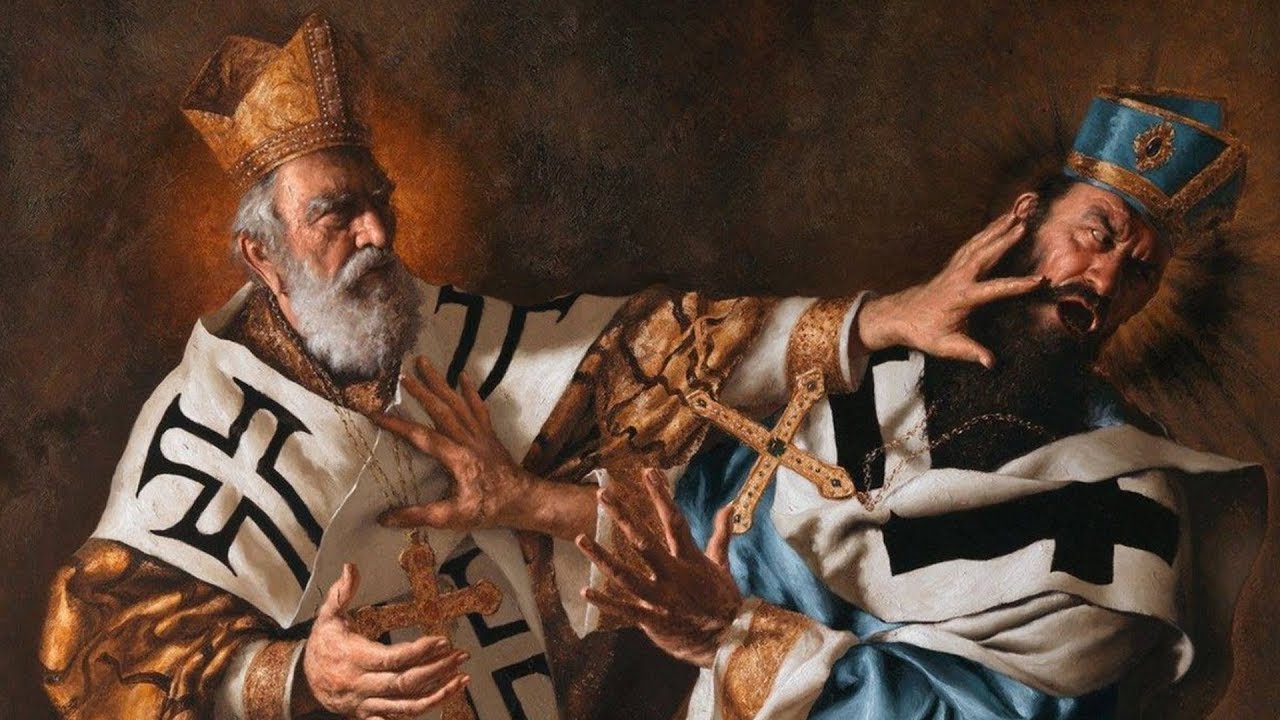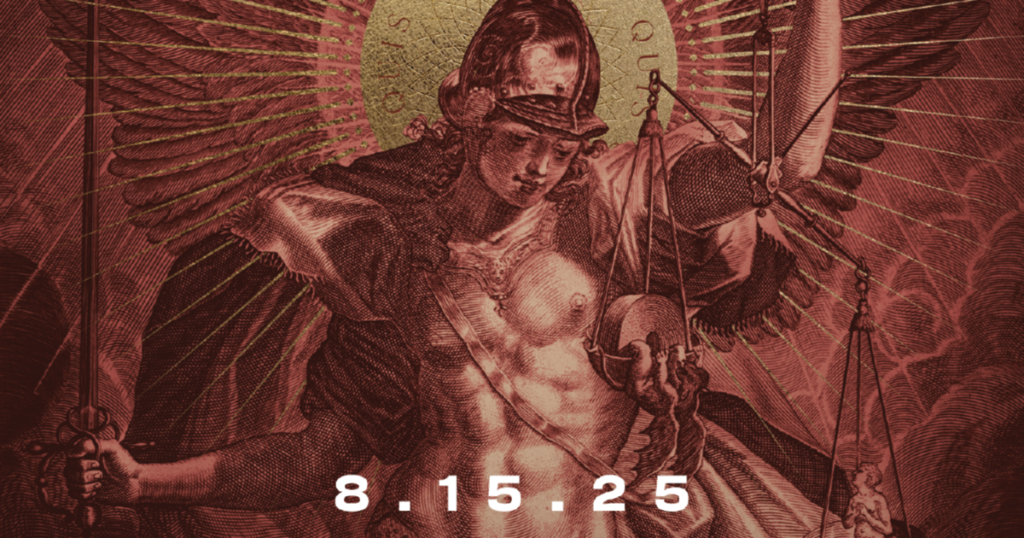On December 6th, we celebrate the feast of St. Nicholas, a.k.a. Santa Claus. As you may have expected, St. Nicolas’s story neither begins at the North Pole nor in Sombertown. Rather, it begins in the city of Myra, located in Asia Minor (modern-day Turkey). Nicolas was born to wealthy parents in the fourth century. He suffered under the Diocletian persecution and was imprisoned. He was released after Constantine issued the Edict of Milan (313), which made Christianity legal in the Roman Empire. Nicholas was consecrated the bishop of Myra.
While there is very little historical evidence to suggest that it is true, many claim that Nicolas was enraged by the heretical blabbering of Arius at the Council of Nicaea (325) and socked Arius in the jaw. Nicholas defended the doctrine that Jesus is homoousios (of the same substance) with the Father, while Arius maintained that the Son was homoiousios (of a similar substance) with the Father. This story generates many clever memes around this time of year.
Another popular story about Nicholas is that he used his family’s wealth to help those in need. It is said that a man had three daughters at that time, but this man did not have sufficient wealth to secure dowries for his daughters. In lieu of a dowry, these women would likely have given themselves up to prostitution. Nicholas is said to have snuck into their house in the night and left three bags of gold for the father to use as dowries. Many claim that this act of charity led to the association of St. Nicholas and gift-giving.
This story is commemorated by the modern tradition of children putting out their shoes so that “St. Nicholas” will come and bring them gold in the night—usually, the children would find tangerines and nuts or chocolate coins the next morning. This also led to the tradition of making Speculaas cookies. There are gingerbread-like cookies that are molded to look like St. Nicholas.
Over time, the stories of the holy Bishop Nicolaus became the stuff of legend and entered the realm of fairy tales. The once Turkish bishop took up residence at the North Pole. In 1823 Dr. Clement Clarke Moore wrote his famous poem “A Visit from St. Nicholas” or “T’was the Night before Christmas,” for his children. In the poem, he describes the Bishop of Myra as “chubby and plump, a right jolly old elf.” The poem begins:
‘Twas the night before Christmas, when all through the house
Not a creature was stirring, not even a mouse;
The stockings were hung by the chimney with care,
In hopes that St. Nicholas soon would be there.
St. Nicholas has had many names over the years: St. Christmas, Father Christmas, Old Man Christmas, and Père Nöel. In some countries, the idea of giving Christmas gifts is not associated with St. Nicholas but rather with Christkindl—the Christ Child. In the United States, this gift giver was known as Kris Kringle (from Christkindl), and eventually, the stories of Saint Nicholas and Christkindl were merged to make a story of Santa Claus.
Saint Nicholas, pray for us!
Jacob Zepp is a graduate student at the Catholic University of America, where he is pursuing an M.A. in Liturgical Studies/Sacramental Theology. He graduated from Wyoming Catholic College, where he wrote his thesis on liturgical history and theology. Jacob has worked for Exodus since 2020. He and his wife, Anastasia, have one child.





